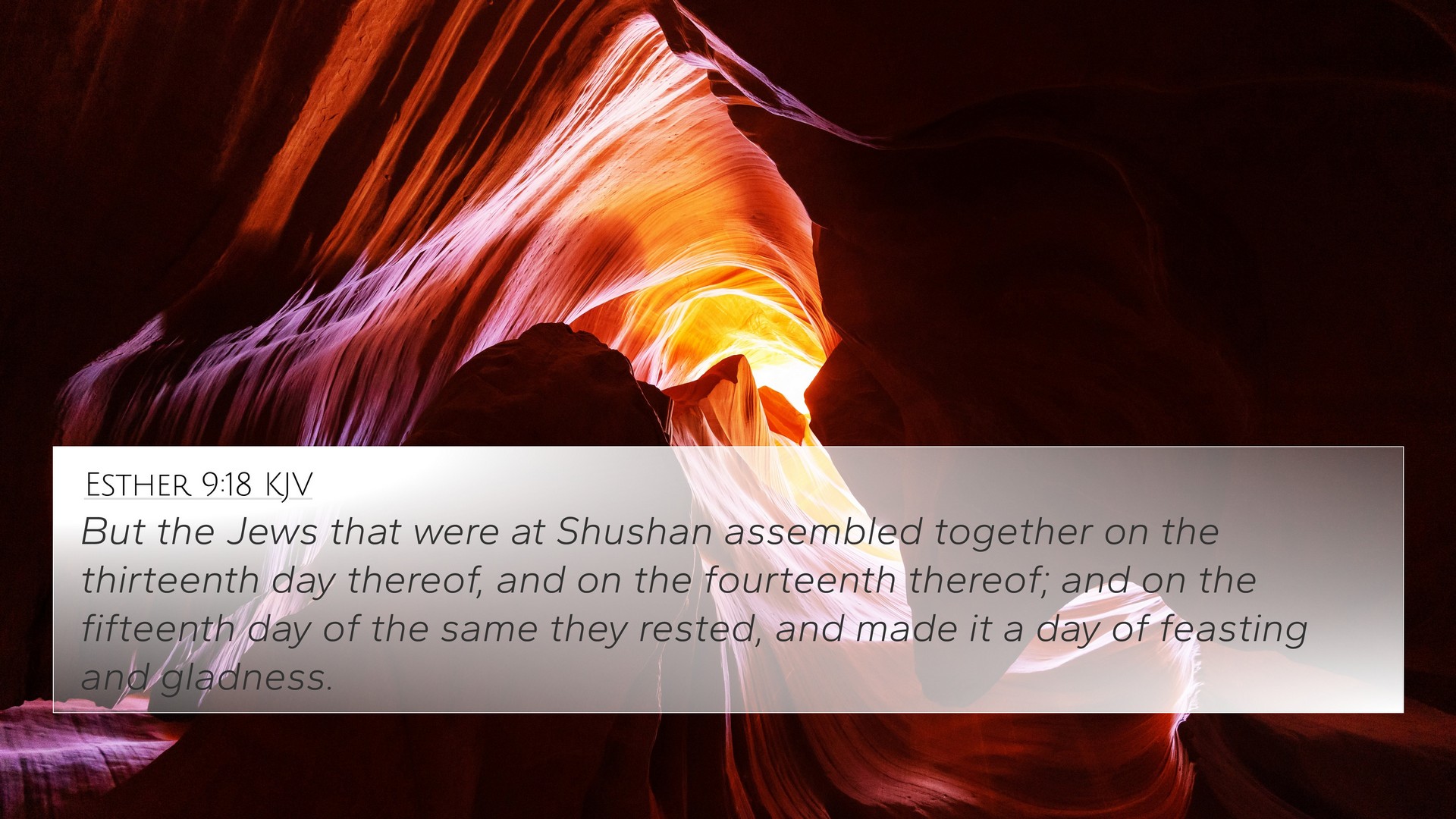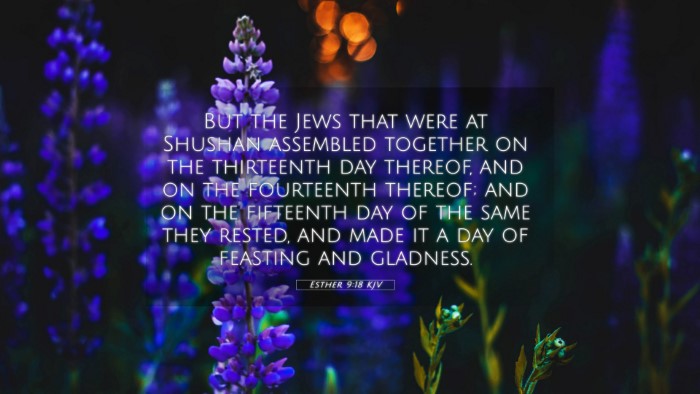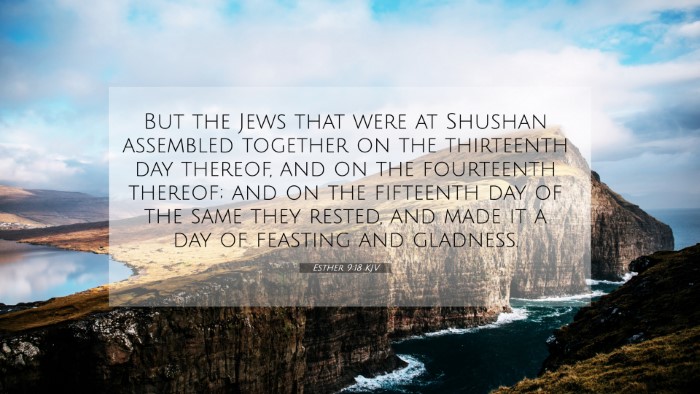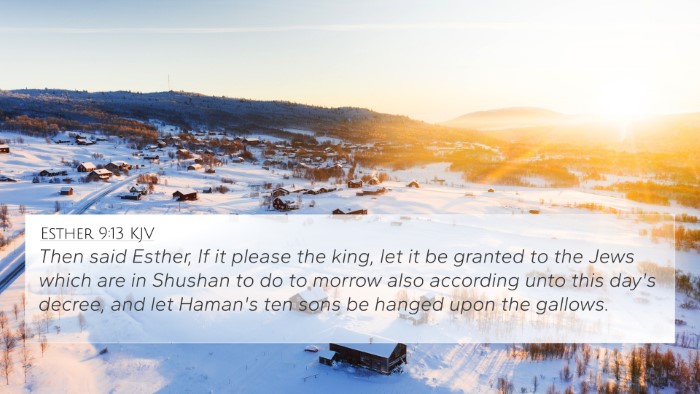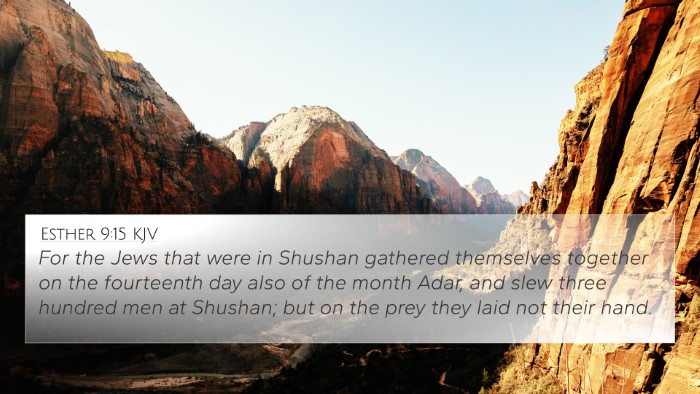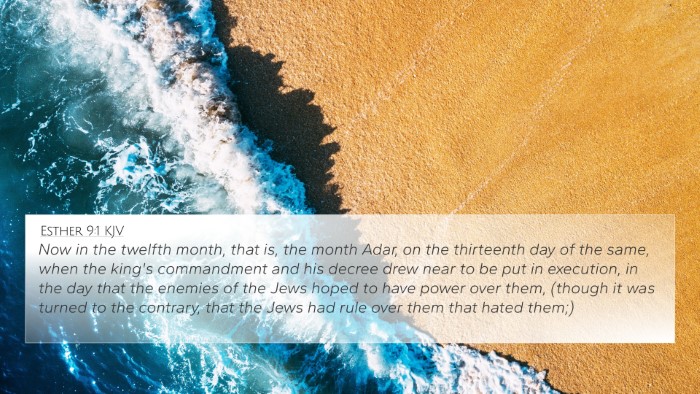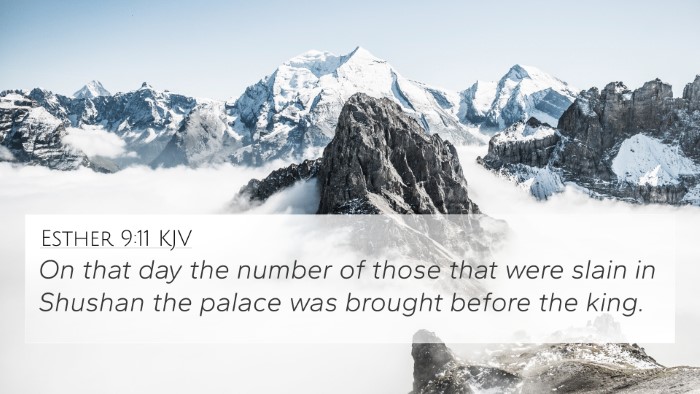Understanding Esther 9:18
Esther 9:18 reads as follows: "But the Jews that were at Shushan assembled together on the fourteenth day also of the month Adar, and killed three hundred men at Shushan; but on the prey they laid not their hand." This verse is pivotal in understanding the celebration of Purim and highlights the distinction between the actions of the Jews in Shushan and those in other provinces.
Context and Background
The Book of Esther narrates the story of the Jewish people's deliverance from extermination in Persia. This particular chapter reflects the aftermath of their victory over Haman's plot to destroy them. The specific mention of Shushan—the capital of Persia—underscores the gravity of the situation faced by the Jewish community there.
Insights from Commentaries
- Matthew Henry: Henry emphasizes the importance of the fourteenth day of Adar, which became a day of feasting and rejoicing. He notes that the actions of the Jews in Shushan were not merely a matter of vengeance but a demonstration of their faith and reliance on God for deliverance.
- Albert Barnes: Barnes provides a practical interpretation focusing on the restraint shown by the Jews by not taking the spoils of war. He interprets this choice as indicative of their desire for justice rather than greed, highlighting the moral and ethical implications of their actions.
- Adam Clarke: Clarke's commentary explores the significance of the assembly of Jews on this day. He points out that the collective action signifies unity among the Jewish people against a common threat, reinforcing their identity and resilience.
Thematic Connections
Esther 9:18 touches on themes of deliverance, identity, and moral integrity in the face of adversity. These themes can be linked to several other scriptures in the Bible, showcasing the interconnectedness of Biblical texts.
Bible Verse Cross-References
- Esther 9:1-2: Provides the backdrop of the Jews' victory and illustrates the broader implications of their actions.
- Esther 9:17: Details the actions of the Jews outside Shushan, enhancing the understanding of the community's response to their salvation.
- Psalm 118:15: "The voice of rejoicing and salvation is in the tabernacles of the righteous..." correlates with the joy celebrated during Purim.
- Isaiah 54:17: "No weapon fashioned against you shall prosper..." aligns with the protective nature of God's promises to His people.
- Exodus 17:14-16: God's command to Moses to remember the Amalekites reflects the legacy of God's deliverance and the need for remembrance in Jewish tradition.
- Nehemiah 8:10: "The joy of the Lord is your strength..." reinforces the theme of celebration and reliance on God's strength during difficult times.
- Philippians 4:4: "Rejoice in the Lord always..." reflects the joy that permeates the celebration of Purim.
Applying Esther 9:18 to Modern Life
The lessons drawn from Esther 9:18 extend beyond historical context to practical applications in our lives today. The choice of the Jews not to take spoils serves as a moral guide about integrity and justice, often applicable in various scenarios of daily life.
Conclusion
In conclusion, Esther 9:18 is a rich verse that invites deep reflection and interpretation, with connections to various other biblical texts. The celebration of Purim exemplifies themes of deliverance, community resilience, and moral integrity, all of which are relevant to believers today. As one engages in cross-referencing Biblical texts, the insights gained from this verse enrich the understanding of God's providence and moral expectations among His people.
